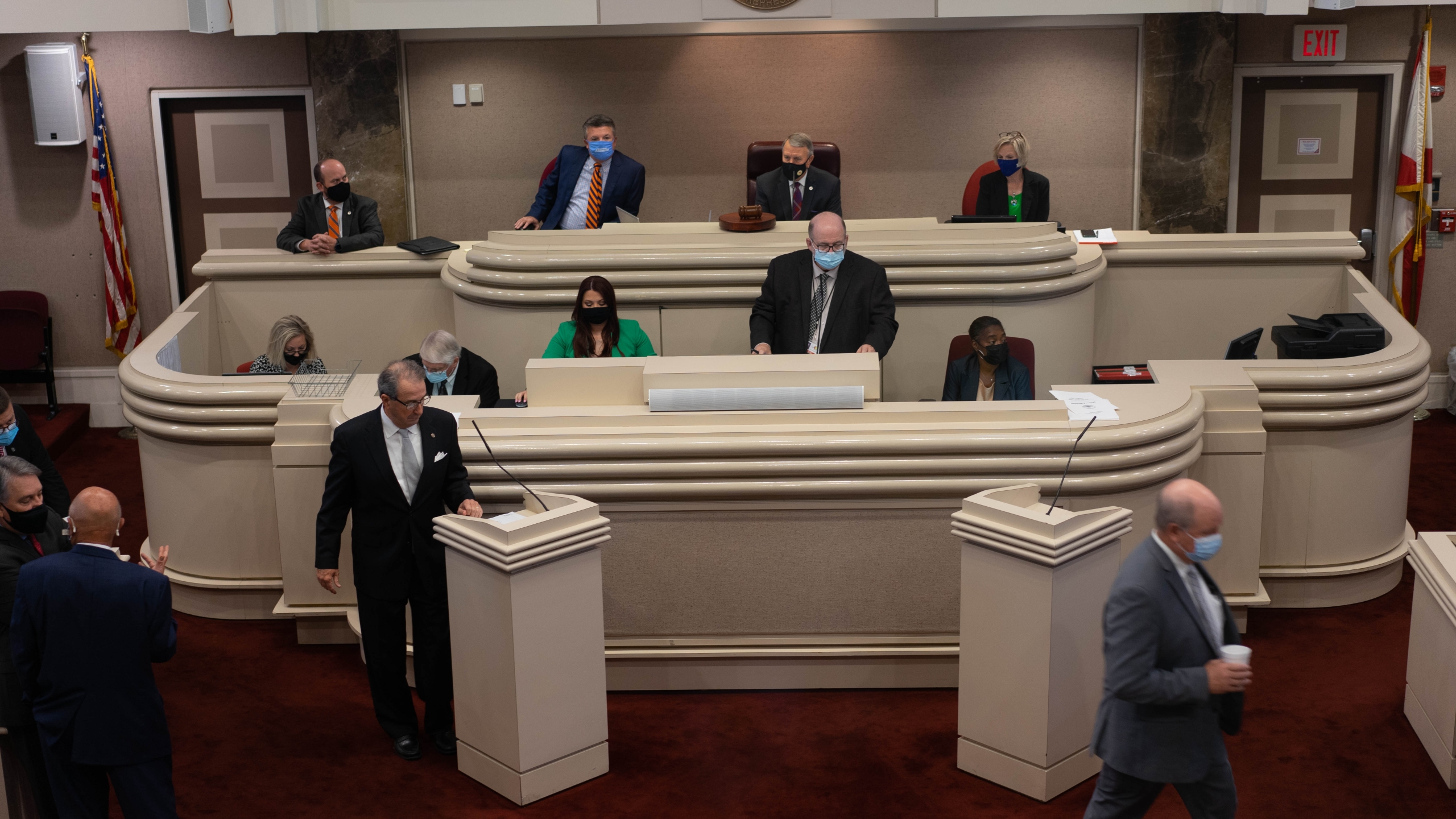The Alabama Legislature entered the final stretch of its 2022 legislative session Monday, opening what will likely be its last first day with a medley of House action on a few of the session’s less-controversial bills.
The more controversial pieces of legislation — including measures to further criminalize healthcare for transgender youth and the “divisive concepts” bill — are likely to appear further into this week and extend the session’s final days.
The education budget will likely go to a legislative conference
The Alabama House is expected to send the $8.2 billion Education Trust Fund budget to conference Monday, according to sources with knowledge of the budget’s legislative future.
If a conference committee is called Monday, state legislators could meet as soon as Tuesday to deliberate and offer revisions to the budget before sending it forward for final passage. Even in its current iteration, the budget is the largest in state history.
The Alabama Senate passed a substitute education budget Thursday, which included increases in spending for the Alabama community college system by some $8.6 million, with a 25 percent increase in prison education and $22 million more for Pre-K classes also included in the revised budget.
The state education budget and the general fund budget are the only two pieces of legislation the Alabama Legislature is required to pass, according to the Alabama Constitution.
Literacy Act of 2019 revisions
A bill to delay the implementation of a hold-back prevision within the 2019 Literacy Act is expected to be brought forward for debate in the Alabama House Monday.
Currently, the Literacy Act requires third-graders to be held back a year if they fail to reach third-grade reading levels.
SB200, sponsored by state Sen. Rodger Smitherman, D-Birmingham, was vetoed during the previous legislative session by Gov. Kay Ivey and has since become a key piece of legislation for Smitherman and other supporters of the bill who believe the COVID-19 pandemic left many elementary school students without adequate preparation for reading level tests due to school closures and extended online learning.
The bill passed 20-12 earlier this session– comparably thin margins for the Alabama Senate.
Along with 17 states and the District of Columbia, Alabama is among the few in the U.S. where students who do not read at a third-grade level repeat the grade.
Revise tax credit for donations from scholarship-granting organizations
State Sen. Dan Roberts’ revision of the tax credit law for scholarship-granting organizations is on the agenda for Monday’s Alabama House debates.
The bill would allow a taxpayer to claim a tax credit for up to 100 percent of the tax liability, not to exceed $100,000 per taxpayer or a cumulative amount of $30 million per year.
Current law allows taxpayers to claim a tax credit equal to 100 percent of total contributions made to scholarship-granting organizations for education scholarships for upwards of 50 percent of the tax liability to the taxpayer, not to exceed $50,000 per taxpayer or $30 million per year.
Telemedicine legislation is moving toward final passage
Legislation officially regulating telehealth and telemedicine in Alabama is expected to be voted on Monday in the Alabama House.
The bill, sponsored by state Sen. Dan Roberts, R-Mountain Brook, limits the number of virtual visits an individual can seek to four times for the same malady in a 12 month period.
Supporters of the bill believe the legislation will set standards of practice for telehealth and telemedicine while maintaining effective availability, particularly in rural parts of the state. Opponents believe that the requirement to visit a doctor after four virtual visits is an unnecessary obstacle for patients seeking treatment.
The Alabama Senate passed the measure last week, with the House now posed to rule on final passage of the bill.
Alabama’s legislative response to Brookside abuses
The Alabama House will consider a bill requiring that only 10 percent of funds in a city or municipality’s budget may from fines and penalties generated from traffic tickets.
The bill, sponsored by state Sen. Garlan Gudger, R-Cullman, would also provide that excess funds generated to be distributed to the Crime Victims’ Compensation Fund and fair Trail Tax Fund.
In recent months, the continued revelations of the policing abuses and capricious ticketing of the Brookside Police Department have caught the attention of legislators in Montgomery, including Lt. Gov. Will Ainsworth and Democratic Party chair Chris England, both of whom vowed legislative action.
Gudger’s bill passed the Alabama Senate late this March.
















































